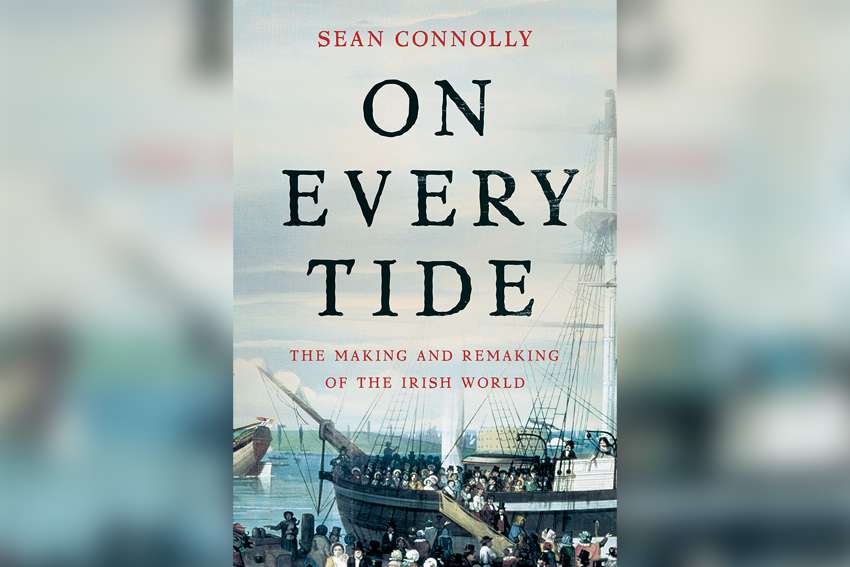On Every Tide: The Making and Remaking of the Irish World by Sean Connolly. Basic Books (New York, 2022). 544 pp., $35.
The Catholic Church throughout much of the world was shaped by the Irish diaspora, the migration of eight million Irish men and women that took place (mostly) between 1760 and 1960.
As the Irish left their native soil to escape poverty and find new opportunities, they were followed by priests and bishops, and religious sisters and brothers who provided the sacraments, taught in their schools, provided health care and nurture, and cared for those who were poor and indigent.
The story of this great migration of Irish men and women and the faith they bought with them is told in Sean Connolly’s captivating new book, On Every Tide: The Making and Remaking of the Irish World.
Connolly, an emeritus professor of Irish history and visiting research fellow at the Institute of Irish Studies at Queen’s University Belfast, presents a comprehensive and enlightening narrative of this time and the people who created it.
The book is a grand historical tour de force providing great insight into the role the Irish played in shaping their new homelands. While the focus is primarily on the settlers themselves, this story cannot be told adequately without also describing the role of the Catholic faith they brought with them, which the author does with great dexterity.
Here we have both the history of the people who left Ireland and the history of the Catholic Church in these countries. While many of the Irish immigrants were Protestants, the role of the Protestant churches is given little attention here.
While the book is data-driven, with much information taken from census reports and other historical sources, it is never boring. Connolly weaves this data into his narrative, along with first-person accounts from the immigrants themselves (mostly from letters), to present an enjoyable reading experience.
In addition, the book is majestic in scope: The reader learns in detail about the Irish influence on the settling of Canada and the United States, New Zealand and Australia, along with how the Irish influenced the political and social structures of each of these countries. Although many Irish immigrants settled in England, not as much information is provided on their roles in that country.
While the positive role the Irish played in shaping the “new world” is highlighted, their role in negative aspects of the conquest is also told.
While many of the Irish suffered under English rule — the story of the potato famine is told in detail as are many of the other causes of the great migration — the Irish were often the oppressor of the Indigenous peoples of their new homelands. This story is told as well. Although not told in depth, the story of the role the Irish played in racial hatred in the United States is also addressed.
This book will be of much interest to anyone (especially those of Irish ancestry) who wants to understand Irish history and heritage. It will also be of great interest to anyone interested in understanding the history of the Catholic Church in these countries where the Irish settled.
With its 19-page index, it will also be a handy source for those seeking to do research of their own. The index is traditional, meaning that it is organized alphabetically, so that the reader needs to know the name they seek to find it. A historical and country-specific index would have been useful.
The demographic charts included in the appendix provide a quick and helpful reference for the numbers of Irish who emigrated, where they went and when. Also provided is a listing of suggested other readings for those who want to engage the topic in greater detail.
Congratulations to the author on a superbly researched and well-written history.
(Mulhall, whose grandfather emigrated from Ireland in the early 1800s, lives in Louisville, Kentucky.)


